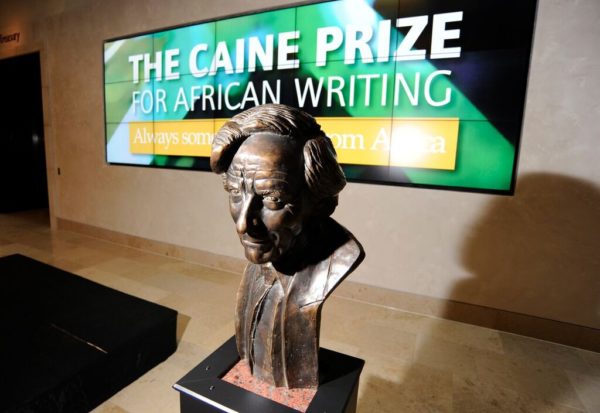
In 2017, several Caine Prize records almost got broken. But one did get broken. Sixty-five-year-old Sudanese Bushra al-Fadil is the oldest fictioneer to get nominated for the Caine prize. But after him, the list of almost-records begins.
1. Second Arabic-to-English Translation
Bushra’s “The Story of the Girl Whose Birds Flew Away” is a translation from Arabic to English and almost became the first so translated to make the top five. But it settled for second. The 2001 Prize shortlisted Tunisia’s Hassouna Mosbahi’s “The Tortoise,” which had been translated by Peter Clark.
2. Second Sudanese Writer To Be Shortlisted
Bushra, again, was almost the first Sudanese writer to grace the Caine Prize shortlist. However, that record eternally belongs to Leila Abouleila. She is not only the first Sudanese Caine-recognized writer but also the first ever winner of the prize in 2000.
3. Second Writer To Be Shortlisted in Consecutive Years
Lesley Nneka Arimah is slaying. Besides winning the Commonwealth Short Story Prize in 2015, she has now been in the Caine Prize Champions League final for two consecutive seasons. Lesley almost set a record with her back-to-back shortlisting but Henrietta Rose-Innes already reigns in that realm. She made the shortlist in 2007 and 2008 with “Bad Places” and “Poison” respectively, the second of which won her the prize. So if Lesley wins it this year, she will only be the second writer to accomplish that.
4. Second Writer To Possibly Win Both the Caine and the Commonwealth Prizes
I know some readers are already saying, “Lesley will be the first writer to win the Commonwealth Short Story Prize and Caine Prize then!” Being recognized on both platforms will be quite an achievement for her, yet it is another oops. Her compatriot, Helon Habila, has been there. He won the Caine in 2001 and the Commonwealth Best First Book Prize in 2003. If Lesley wins, though, she will be the first to do it with short stories as the Commonwealth Prize no longer awards books.
5. Second Youngest Shortlistee Ever and Youngest Nigerian Shortlistee
22-year-old Nigerian, Arinze Ifeakandu, almost broke the “youngest writer to ever get shortlisted for the Caine” record. But that bragging right still belongs to Zambia’s Efemia Chela who did it at 21, in 2014 with “Chicken.” I know the army of young Nigerian writers who know Arinze are lurking in the shadows, waiting to hack back at their keyboards: “Arinze wrote that story at 18, he wrote it at 18! 18!” Impressive, but if we ask Efemia, maybe she will just quip, “I wrote ‘Chicken’ at 14!” and get a gigantic bite off her piece of unctuous chicken. One remarkable similarity between Ifea and Effie is that both of their shortlisted stories are bold, insightful takes on queer sexuality. On the Records Note, though, Arinze is the youngest Nigerian writer to get nominated for the Caine Prize, knocking off Chimamanda Ngozi Adichie from her 15-year record. Going by the high number of Nigerians who have been finalists for the prize, this is note-worthy. Adichie was shortlisted in 2002 at the age of 25, and coincidentally, she facilitated the 2013 Farafina workshop of which Arinze is an alumni. Little did she know that her student would one day break her record.
6. Second Highest Number of Nigerian Shortlistees
The number of Nigerian writers in this world surpasses the population of Nigeria by a large margin. If you shot a stone in a Lagos market, the head on which it would land would most probably be a writer’s. This year, three of such writers invaded the Caine like a swarm of locusts, and, once again, almost transformed the thing into the Caine Prize for Nigerian Writing. Still, as impressive as it is, 2017 isn’t the year with the highest number of Nigerians. The biggest year of the Nigerian invasion will always be 2013. That year, four Nigerian writers annexed the Caine Prize shortlist like the British colonialists annexed their country—Tope Folarin, Abubakar Adam Ibrahim, Chinelo Okparanta, and Elnathan John. Even the fifth shortlisted writer, Pede Hollist who is Sierra Leonean, is rumoured to have Yoruba ancestry. When I met him in Ghana in 2015, I asked him, “Pede, what is this story I’m hearing about you not being completely Sierra Leonean?”
“My grandparents migrated from Yoruba land in Nigeria to Sierra Leone.”
“Oh, so you’re technically Nigerian abi?”
“Em….”
“Never mind, Prof.”
So a legion of “five” Nigerian bookworms were shortlisted for the Caine in 2013, making this year’s three another almost. Nonetheless, it is still extraordinary. This year’s Ghanaian Caine Prize judge, Nii Ayikwei Parkes, even joked about them on Twitter: “No doubt your Jollof rice can’t compete, bookworms!”
All the feats that happened on the Caine Prize shortlist this year are unintentional “almost attempts” to topple the record feats of the past years. It reminds me of a line in Lauryn Hill’s song, “Lost Ones”: Everything you did has already been done.
*
A slightly different version of this piece first appeared on nkiachaatemnkeng.blogspot.com.
**************
About the Author:
 Nkiacha Atemnkeng works for Swissport at the Douala International Airport. His love for writing and aviation experience inspired him to start a blog, nkiachaatemnkeng.blogspot.com, which won Ethiopian Airlines Cameroon’s first blogging award. Humour comes to him naturally. He writes articles which analyze everything from novels, to the Caine Prize, music and football. He is also a fiction writer who has published an illustrated story book for children, The Golden Baobab Tree by a small US publisher, Aalvent Books. He attended the 2015 Caine Prize Writers Workshop in Ghana, where he wrote a comedy titled “Wahala Lizard,” published in the Caine Prize anthology Lusaka Punk and Other Stories. He won the Entrepreneurship Category of the Vodafone Cameroon Writers Competition. He was also runner-up in the Bakwa Magazine Short Story Competition.
Nkiacha Atemnkeng works for Swissport at the Douala International Airport. His love for writing and aviation experience inspired him to start a blog, nkiachaatemnkeng.blogspot.com, which won Ethiopian Airlines Cameroon’s first blogging award. Humour comes to him naturally. He writes articles which analyze everything from novels, to the Caine Prize, music and football. He is also a fiction writer who has published an illustrated story book for children, The Golden Baobab Tree by a small US publisher, Aalvent Books. He attended the 2015 Caine Prize Writers Workshop in Ghana, where he wrote a comedy titled “Wahala Lizard,” published in the Caine Prize anthology Lusaka Punk and Other Stories. He won the Entrepreneurship Category of the Vodafone Cameroon Writers Competition. He was also runner-up in the Bakwa Magazine Short Story Competition.









Samp June 28, 2017 07:32
Laughed and loved it! Engaging